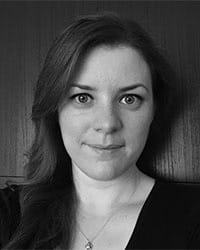Qualification vs Validation
By: Donagh Fitzgerald B.Prod Eng and Claire Wilson BSc. Last Updated: July 2024
What is the difference between Qualification and Validation?
“Qualification” and “Validation” are two words that are used interchangeably throughout the pharmaceutical and medical device industry.
In layman’s language, the terms mean checking and testing equipment and processes. Then document these tests to prove consistent performance. The goal is to establish a documented paper trail with multiple signatures from all relevant departments.
However, there are differences between them.
Qualification is normally used for equipment and utilities, while validation is used for processes. You validate a process on equipment that has been qualified! Despite these differences, validation and qualification are essential components of the same concept and in general, follow similar underlying principles.
Here is a “Rule of Thumb” 👍
- Things are qualified (equipment, pipework, instruments, utilities and ancillary systems)
- Things that are validated (manufacturing process, cleaning, computer systems and tests)
And if you need to learn how to develop an IQ IQ PQ equipment qualification protocol, check out our Equipment Validation (IQ OQ PQ) Training Course – For Starter Validation, CQV and C&Q Roles.
Qualification |
Validation |
|---|---|
| Qualification is the documented act of proving that a mechanical, piping or other system is correctly installed, meets the design specifications and works as expected under load. | Validation is a broader term. It is the documented act of proving a process, procedure, or method leads to a consistent and reproducible result. It can also be described as "documented scientific proof of consistent performance." |
| Qualification is the first step to validation. | Processes are Validated on qualified equipment. |
| Qualification is normally used for: - Equipment - Piping - Instruments - Utilities (clean air, clean water, steam) - Ancillary systems |
Validation is normally used for: - Processes - Procedures - Methods But processes MUST be validated on qualified equipment. |
| Qualification is part of Validation but the individual steps alone do not constitute validation. | Validation incorporates the concept of Qualification. |
| Qualification only applies to equipment that has a direct or indirect impact on product quality and patient safety. This is determined using system impact assessments, component impact assessments, and risk management tools. | Validation only applies to procedures and processes that affect product quality and patient safety. This is determined using risk management tools. |
| Qualification includes the following steps: - URS (User Requirement Specification) - DQ (Design Qualification) - FAT/SAT (Factory/Site Acceptance Testing) - IQ (Installation Qualification) - OQ (Operational Qualification) - PQ (Performance Qualification) |
Validation examples: - Cleaning Validation - Process Validation - Analytical Method Validation - Computer System Validation |
| Qualification will be reviewed by regulatory authorities (FDA, EMA, etc.) when they approve medicines manufactured in a facility. | Validation will also be reviewed by regulatory authorities (FDA, EMA, etc.) when they approve medicines manufactured in a facility. |
What is “Commissioning” and how is it different from “Qualification and Validation”?
Commissioning – is a non-regulated engineering test that brings a new plant or system into working condition. It’s a systematic approach to the start-up of a manufacturing system and covers all aspects of bringing a system or subsystem to a position where it is regarded as being ready for use in pharmaceutical (and other) manufacturing. The primary focus is placed on satisfying engineering requirements for the facility, defined earlier in the project.
Commissioning verifies that:
- what was specified was installed
- it functions properly
- it was successfully turned over to the user
Regulation – Commissioning as an engineering process has no regulatory requirements.
Steps – Commissioning includes the following steps:
- Planning and preparation
- Equipment installation
- Infrastructure and utility verification
- Testing
- Handover to operations
- Continued monitoring
Costs – Its costs, rigour and volume of documentation depend on the engineering requirements for the facility, defined earlier in the project.
About the Author
Donagh Fitzgerald
Head of Marketing & Product Development
Mechanical/Production Engineer
Donagh looks after the marketing and product development including the training and pedagogical elements of our programs and makes sure that all GetReskilled’s users can have a great online learning experience. Donagh has lived and worked in many countries including Ireland, America, the UK, Singapore, Hong Kong and Japan. Donagh has also served as the Program Manager for the Farmleigh Fellowship based out of Singapore.
Donagh holds Degrees in Production Engineering and Mechanical Engineering from South East Technological University, Ireland.
Claire Wilson
Content Marketing and Career Coaching
Claire runs GetReskilled’s Advanced Career Coaching Programme – our specially devised job hunting course that helps our trainees take that final step into employment by leading them through the job hunting process. She is extremely enthusiastic about helping people reach their final goal of employment in their new career path.
Claire has a BSc (Hons) in Medical Biology from Edinburgh University and spent 7 years working in the pharmaceutical and medical device industries.

